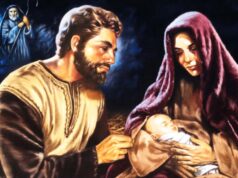By Rev David Munobwa
The book of Proverbs is one of the richest books in the Bible. It is rich in content that covers many different subjects/aspects of human life, including work, social behaviours, relationships, marriages, justice, fairness, welfare, poverty and warns against laziness, drunkardness and adultery.
Falling in the section of the Bible known as wisdom literature, the book of Proverbs displays wisdom at its best.
No wonder the book is generally ascribed to the wisest man who has ever lived, Solomon son of King David, as evidenced in Proverbs 1:1, 10:1, 25:1.
However, a keener eye on the content reveals that some proverbs were authored by different people such as Hezekiah’s men (Proverbs 25:1), Agur (Proverbs 30:1) and Lamuel (Proverbs 31:1).
Wisdom is life
Proverbs present a conflict between wisdom and foolishness, personifying them in “Lady Wisdom” and “harlot folly” Get wisdom, get understanding: forget it not; neither decline from the words of my mouth.
Proverbs 4:5-9: “Forsake her not, and she shall preserve thee: love her, and she shall keep thee. Wisdom is the principal thing; therefore get wisdom: and with all thy getting get understanding.
“Exalt her, and she shall promote thee: she shall bring thee to honour, when thou dost embrace her. She shall give to thine head an ornament of grace: a crown of glory shall she deliver to thee.”
The bottom-line is that embracing wisdom leads to life, while succumbing to the seduction of foolishness leads to death.
Proverbs 8
Wisdom in this chapter is personalised as a lady who calls out on the streets to the children of men.
The chapter is sectioned into five major parts: (1) The address (Proverbs 4-5), (2) A call to listen to her instruction and why (Proverbs 6-11), (3) The character and purpose of wisdom (Proverbs 12-21), (4) Origin of wisdom (Proverbs 22-31), and (5) A concluding appeal (Proverbs 32-36).
Before the address, wisdom is personified as a human calling, raising her voice on high places along the streets, at the crossroads and at entrances of towns.
It is a signal to all, everywhere, to hearken and embrace wisdom as a principal thing.

Wisdom, discrimination
The address is highlighted by an all embracing, indiscriminating call. “I call to you, to all of you” (Proverbs 4). Every person needs to get wisdom.
There is no one so qualified, so elite, so old or experienced that does not need wisdom.
The ground for calling on everyone regardless of one’s level in the social strata, is underscored in Proverbs 8:6-11.
For wisdom speaks noble things which are right and righteous.
While children of men are crazy about riches, symbolised by silver, gold, and jewels (pearls), it is clear that wisdom is better than jewels and all that you may desire cannot compare with her.
“Receive my instruction and not silver; and knowledge rather than choice gold, for wisdom is better than rubies” (Proverbs 8:10-11).
Wisdom lives together with good judgement, and knows where to find knowledge and discretion.
Who on Earth can thrive without good judgement and discernment?
No wonder it is with wisdom that Kings reign and rulers decree what is just.
This points to the significance of wisdom in leadership. Almost all pertains the welfare and the political, social and economic wellbeing of society is hinged on leadership.
Therefore, wisdom should be sought by anyone who is in any position of influence. Good enough, those who earnestly seek wisdom find her.
Wisdom defines God
The personality in question, according to the glaring clues, is Christ Jesus. The text does not only paint to the pre-existence of Christ but also to His incarnation.
Another outstanding revelation is that wisdom is the character of God by which He created.
At it is very possible that this proverb informed Apostle Paul’s theology while describing Christ in some of his letters, such as Colossians1:17 and 1 Corinthians 1:24). All other New Testament accounts such as John 1:1-3,
Hebrews 1:3, also point to the revelation that the personality described in Proverb 8, is Christ, through whom God created the world.
It is not surprising that the conclusion of Proverbs 8, aligns with Christ’s ultimate purpose.
Proverbs 8:35-36: “For whoever finds me, finds life and obtains favour from the Lord. But he who fails to find me injures himself. All who hate me love death.”
It is not an over statement to conclude that finding/having Christ is having wisdom, and those who have no Christ have no wisdom.
The Author is the Assistant Vicar at Christ’s Cathedral Bugembe, COU.
+++++++++++++++++++++++++++++++++++++++++
Subscribe to our website and be the first to receive great Christian news, health information, pastoral guidance, environment, farming and many others. Also, Like and follow us on Facebook at Good News UG.






















